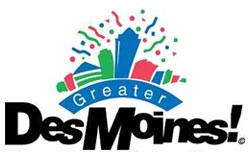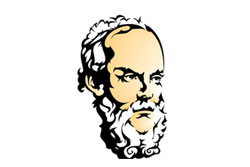Andrea Joss, Quester Senior Vice President of Research, recently celebrated her 20th anniversary. We asked her to take a look back at her career and the industry, and predict what’s in store for the future of market research.
Tell us about yourself and the various roles you’ve held at Quester
My academic background is in rhetoric and professional communication. I started as a field moderator — doing phone and face-to-face interviews — prior to the development of our software moderator. From there I worked my way to being a research assistant, analyst and project director. I’ve been involved with many different clients and external projects through the years, as well as the internal evolution of Quester.
I’m a wife and a mom of four – I’ve actually been a mom longer than I’ve been at Quester. I have a crazy love for books and for the pursuit of the perfect chocolate chip cookie recipe. I also genuinely love people (including everyone at Quester).
Take us back to the early years. What kind of work did Quester do and what role did technology play back then?
In the early days we were very focused on one-on-one, traditional qual, but also on customer service consulting. The company has always been about effective communication, and gathering and evaluating language in different environments. We’re still doing the same thing, we just use different technology to get there.
I still remember 30 people sitting in a room on landline telephones with curly cords, recording interviews on cassette players, then running them over to the transcription department. The underlying theme is the same, we’re just more efficient now. (And we have better hair.)
What are the most significant changes you’ve seen at the company and in the industry over the years?
The most obvious one is that our tools have changed and our typical sample sizes have grown from being in the dozens to in the hundreds. We conduct a crazy number of interviews in a year.
Culturally, Quester has responded well to both technological and environmental evolutions. We’ve grown into a collaborative, creative, and supportive work environment. Research expectations have changed too – we’ve evolved from simply providing clients with raw facts and data to now playing a more consultative role where we also help clients interpret and report data. Today, clients often look at us as partners.
You work with insights professionals from some of the nation’s largest and most successful corporations. What are the biggest challenges clients face today? What trends are you seeing?
There are a few things we see consistently – there is so much technology and data available it can be overwhelming to sort through it all. The speed of change has increased drastically too. It’s not uncommon for us to see needs, focus and objectives globally changing at a company over the course of a few weeks. And innovation is always a key area of focus.
Everyone needs a well-grounded perspective, honed around data but elegantly packaged. The underlying key now is the same as it’s always been which is to connect with and understand people. I just think it’s more challenging now to navigate the best ways to do that.
What predictions do you have for the future of the market research industry?
I know I couldn’t have predicted 20 years ago what it would look like now. But short-term, I think we’ll continue to see issues with traditional online surveys that will force us to find more engaging ways to do research. Also, the availability of massive volumes of data and tools like increasingly-intelligent AI, will dramatically alter the way people do their work.
I’m excited to see things like super sophisticated qual conducted through the Echo and the possibilities that will come from virtual reality tools. I’m excited to work with and explore the changing ways people are communicating — blending language and imagery. We could even see personal tech devices evolve into where people voluntarily continuously share ethnographic information about their lives.
Regardless, I think it’s all going to be fantastic and fun — in some ways, I feel like that continues to give us some freedom to redefine the way we conduct and use traditional interviewing models. That’s part of the reason I’ve been here for so long — I can’t wait to see what’s going to happen next.

